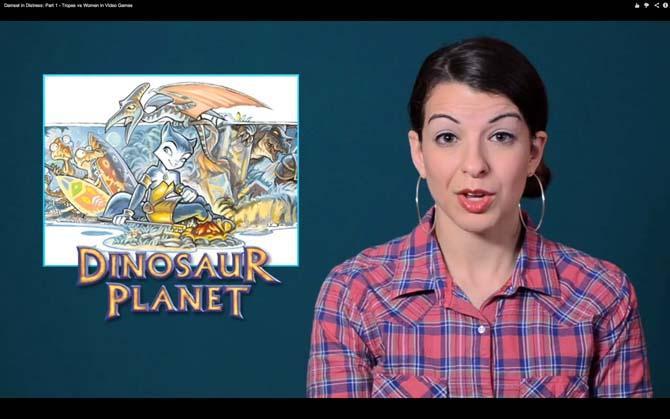During June’s E3, the annual Electronic Entertainment Expo, Microsoft announced 27 new games for the Xbox One console — but none of these games have a female protagonist.
When Feminist Frequency blogger Anita Sarkeesian pointed this out on Twitter, she was met hostility. Responders told her, “what did you expect? Cooking and Cleaning games at a console launch reveal?” and called her the c-word repeatedly. This response only reinforces the point that, despite the technological advances made in the gaming industry, it is still as sexist as ever.
That’s surprising, considering the Entertainment Software Association just released statistics that say 45 percent of all gamers are female. Most games are marketed toward males 17 and younger, yet they only make up 19 percent of the gaming community.
Last time I checked, ignoring 45 percent of your consumers is just bad for business.
Despite this, publishers are skeptical to create games with female leads under the notion that they don’t sell. Last year, EEDAR, a video game research firm, found that of 669 games with protagonists of recognizable genders, only 24 — 3 percent — were female. Also, players had a choice to pick the gender of their character in less than half of the games.
The problem is this: Publishers don’t market games with female leads well. Geoffrey Zatkin, the COO of EEDAR, spoke with The Penny Arcade Report about a year ago about how marketing departments are hesitant to put much effort into games with female leads. Zatkin hopes this will change with new social media outlets and a growing female gamer demographic.
Becky Chambers is a gamer and freelance writer who has felt the aggravation of video games not catering to women.
“Women who regularly play more complex games are used to impractical armor and characters that leave us wanting,” she said. “This isn’t our first time at the rodeo, but that doesn’t mean we’re always willing to put up with it. We pay attention to how women are presented in marketing material, in everything from trailers to box art … Our boundaries vary, but we all make our purchasing decisions based on which side comes out on top.”
While Chambers says she isn’t discouraged from buying games with male leads, she hopes publishers will make more games that make women feel welcome.
More important than that, fellow gamers shouldn’t make women feel unwelcome either. Sexual harassment in the gaming community is a huge problem.
Last year, experienced gamer Miranda Pakozdi entered the “Cross Assault” video game tournament as the only girl on her team. During the six-day tournament, Pakozdi’s coach, Aris Bakhtanians, interrogated her on camera about her bra size, focused the team’s webcam on her chest, feet and legs and at one point even leaned in over her shoulder and smelled her. She eventually committed virtual suicide to forfeit the game.
Bakhtanians later defended his harrasment of Pakozdi as part of “the fighting-game community.”
In addition, when Sarkeesian started a Kickstarter fundraiser in May to raise $6,000 to document how women are portrayed in video games, her YouTube and Facebook pages were flooded with hate-filled comments and violent threats. A man from Ontario even created a game where players could punch her.
James Portnow, a game designer who has worked on titles including “Call of Duty” and “Farmville,” has taken up the cause to stop harassment in the gaming community. He has spoken with Microsoft executives and a convention panel called “Ending Harassment in Gaming.”
“We [game developers] are a real mass medium, and we have a real effect on the culture,” said Portnow. “We have to take a step beyond this idea that nothing we could possibly do could be negative or hurt people.”
Making women feel welcome in the gaming community isn’t an easy fix, but publishers and developers of the games can help. If more games with female leads were created and marketed well, I believe they would sell well enough to change the business model.
The notion that men won’t buy games with female leads isn’t true and should be tested. At the end of the day, women make up such a large demographic of gamers that publishers and developers should be vying for their loyalty.
Elizabeth Garcia is a 21-year-old mass communication senior from Greensboro, N.C.
Opinion: Video game industry needs to embrace women
July 17, 2013
Feminist Frequency blogger Anita Sarkeesian is a leader in the feminist movement in video games. Of 27 new games announced for Xbox One at E3, none of them featured a female protagonist.







